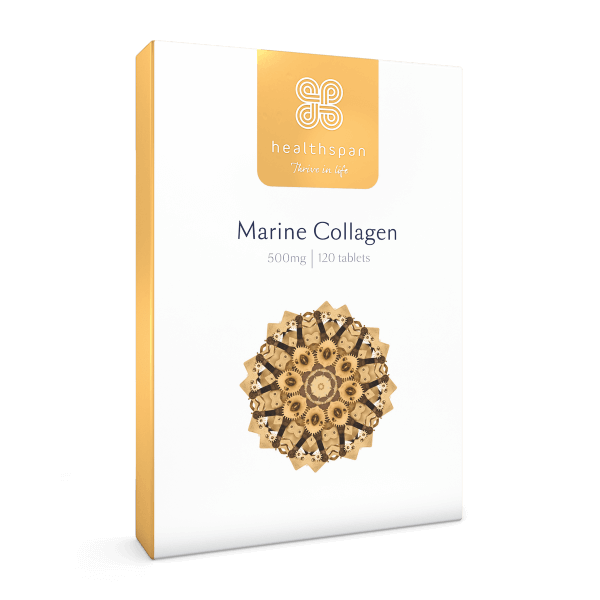The skin is our largest organ, which explains why we focus heavily on its appearance. But papery, dry skin is a common symptom of the menopause that strips women of their confidence.
Here, we look at the roots of skin problems at this time of life and dig deep to find the best remedies for boosting skin health from the inside and out.
Thin papery skin due to the menopause?
Dry skin and the menopause are undoubtedly linked, with a number of studies showing differences in skin thickness during and after it begins. The symptoms below are very common and happen because of something called 'hypoestrogenism', which makes our skin age faster.
Less skin elasticity
Just before the menopause begins, the female hormone oestrogen decreases which in turn slows down collagen production, the protein that gives skin its elasticity. If you've noticed your skin is a little thinner or less firm during perimenopause, it's because of this. You might want to consider a collagen supplement to keep this protein in plentiful supply.
Skin dryness
Oestrogen doesn't just keep your collagen levels boosted, it stimulates the production of oils in your skin that keep it moisturised. So, a lack of this hormone can leave skin feeling dry and itchy. A good tip to remedy dryness is to shower in warm water rather than hot and keep gloves on during the winter to protect your hands from the cold. A reduction in natural oils because of dwindling oestrogen levels increases the chance of wrinkles, too. Despite this being a natural part of ageing that we shouldn't focus on too much, eating a diet rich in vitamin A – an antioxidant – can help.
Adult acne
It's normal to feel emotionally all over the place during the menopause. With all sorts of hormones flying around, there's no surprise we end up feeling sad, stressed and angry all at the same time. But higher levels of the stress hormone androgen activate oil glands on the skin which can cause an outbreak of acne, leaving us feeling even more stressed than before. Take the time-out to relax so that stress doesn't become overwhelming - as this is a common cause for acne - and, if the acne persists, visit your GP for advice.
Hormone replacement therapy (HRT) for healthier skin
HRT has been shown by studies to make the thin outer layer of your skin - otherwise known as the epidermis - more hydrated. Not only that, it increases skin thickness and could help to reduce facial wrinkles, too. It also improves the quality of collagen in the body - an ingredient that aids skin elasticity.1
Skin changes in the vagina during menopause
Just like the rest of your skin, the lining of the vagina can become thinner, drier and less elastic because of falling levels of oestrogen during the menopause. Known as 'vulvovaginal atrophy', this is a problem plenty of women suffer with, but one that can be remedied with intimate gels or even supplements. You need not assume your sex life is over because of a dry vagina!
Vaginal dryness can be caused by lack of oestrogen and thinning of the mucous lining in this delicate part of the body.
If vaginal dryness is a specific struggle of yours during menopause, an intimate gel could be the answer. Look for one that soothes irritation and itching and improves sexual discomfort.

Marine Collagen
Support for your skin, bones and joints
- High levels of hydrolysed marine collagen
- Low molecular weight to aid absorption
- Added vitamin C to support collagen formation






